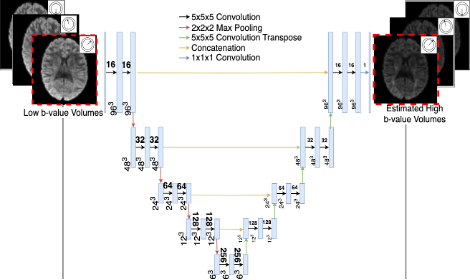
Associate Professor and Director of Biomedical Imaging

Over the past few years my group has developed deep learning methods that use neuroimaging data to synthesize novel neuroimaging that had not actually been sensed by a medical imaging device. We have also used deep learning to extract new measure of effective connectivity from functional MRI scans, and estimate the hemodynamic response function and neural event time series from fMRI. We continue to pursue deep learning methods for solving these types of problems as they have great potential to help us extract greater value out of every imaging data set we acquire.

Publications:
Kai-Cheng Chuang, Sreekrishna Ramakrishnapillai, Krystal Kirby, Arend W. A. Van Gemmert, Lydia Bazzano, Owen T. Carmichael. Joint Estimation of Neural Events and Hemodynamic Response Functions from Task fMRI via Deep Learning. 6th International Workshop on Machine Learning in Clinical Neuroimaging (MLCN) October 2023 Held in Conjunction with MICCAI 2023, Vancouver, BC, Canada, October 8, 2023. Proceedings. pp. 67–78.
Reagan Dugan, Owen T. Carmichael. Multi-Shell dMRI Estimation from Single-Shell Data via Deep Learning. 6th International Workshop on Machine Learning in Clinical Neuroimaging (MLCN) October 2023 Held in Conjunction with MICCAI 2023, Vancouver, BC, Canada, October 8, 2023. Proceedings. pp. 14–22.
Kai-Cheng Chuang, Sreekrishna Ramakrishnapillai, Lydia Bazzano, Owen T. Carmichael. Nonlinear conditional time-varying Granger causality of task fMRI data via deep stacking networks and adaptive convolutional kernels. 25th International Conference on Medical Image Computing and Computer-Assisted Intervention. September 2022.
Kai-Cheng Chuang, Sreekrishna Ramakrishnapillai, Lydia Bazzano, Owen Carmichael. Deep Stacking Networks for Conditional Nonlinear Causal Modeling of fMRI Data. The 4th International Workshop on Machine Learning in Clinical Neuroimaging (MLCN 2021) September 2021.